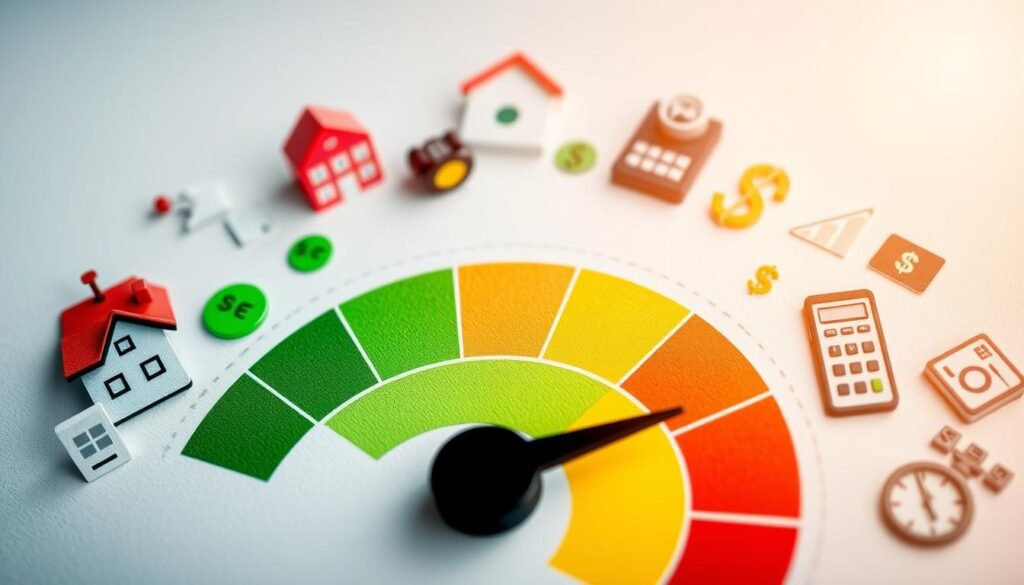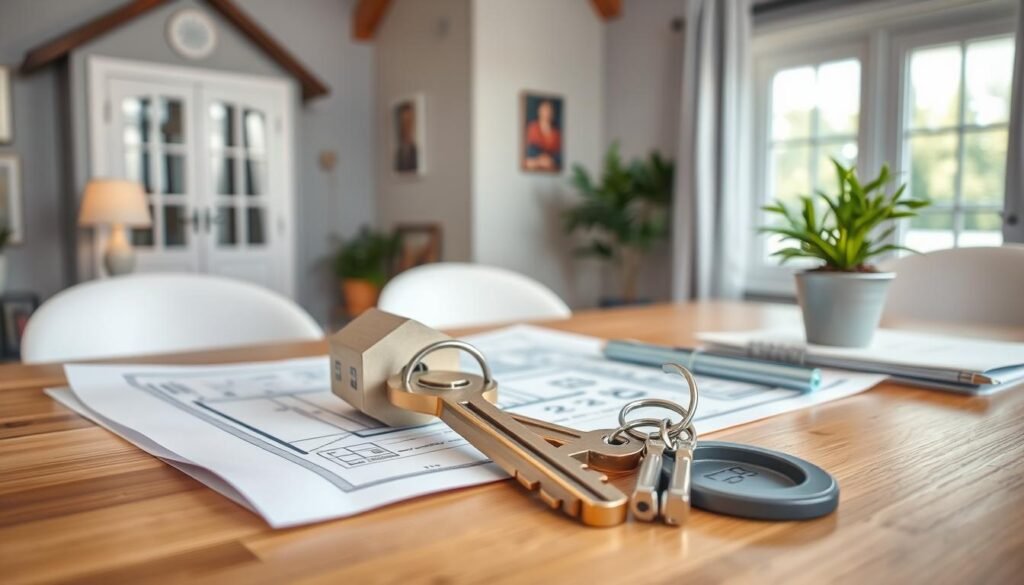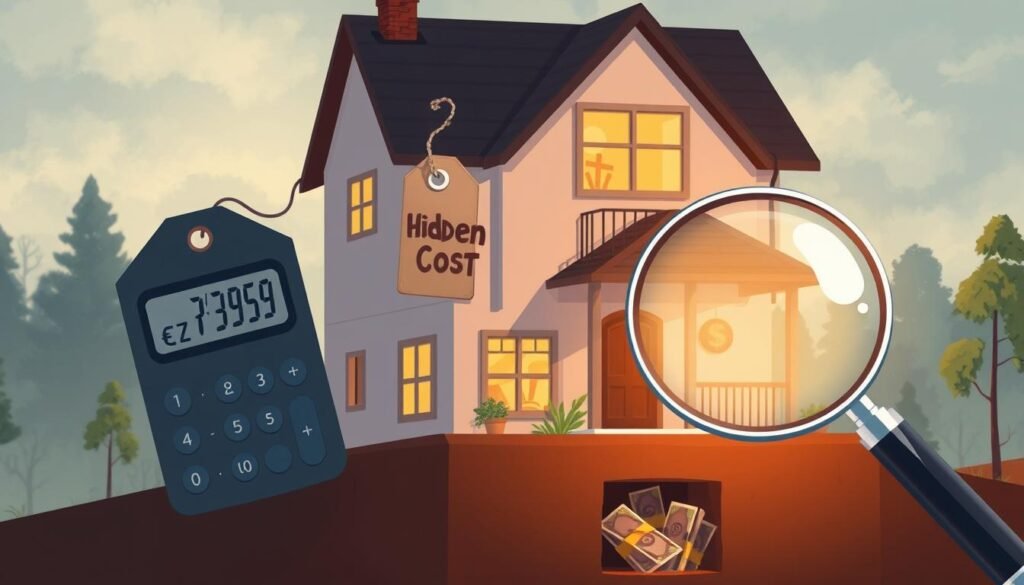This post may contain affiliate links, which means I may earn a commission if you purchase through these links at no extra cost to you.
I remember feeling lost when I was trying to figure out where to start in my home buying journey. So I know that the process can seem very complex and overwhelming at first. In this beginner’s guide, I’ll show you the important steps I took. It covers everything from checking my finances to finally closing on my house.
As a first-time buyer, it’s important to understand money matters first. Home prices really differ depending on where you’re looking. For instance, a house in Westchester County, New York, costs about $800,00. But in Lincoln, Nebraska, you might pay around $300,000. When I purchased my first home, I had no clue what was going on. Everything was happening faster than I expected and I wanted to know everything that was going on behind the scenes. So I decided to become a licensed Real Estate Broker. Mostly, so that I could share what I’ve learned with others. It is my goal to help you figure out your budget, understand your credit, and everything else that goes long with it.
Did you know that first-time buyers can take up to $10,000 from an IRA without penalty for buying a home. I have to stress the importance of planning well and being flexible. This way, buying your first home becomes a journey of reachable goals, not stress. Because we have enough stress in our lives.
Table of Contents
ToggleAssessing Your Financial Readiness
Before buying a home, make sure you’re financially ready. You need to manage your finances and get everything together if you want to be successful in your home buying journey.
Evaluating Your Current Financial Situation
Look at your yearly salary, savings, and financial health. Lenders want to see two years of steady income for a mortgage. Also, you should save up to six months of living costs for emergencies before you buy a house. This is recommended but not required.
Understanding Credit Scores and Their Impact

Your credit score is key in the mortgage process. A good score gets you better loan rates and saves money. A score over 620 can get you a conventional loan. FHA loans requires a credit score of 580. Anything less will require a larger down payment. Knowing how credit scores affect loans can help you boost yours if needed. You should utilize some of the products offered by Experian to help monitor your credit.
Calculating Your Debt-to-Income Ratio
The debt-to-income (DTI) ratio is very important to lenders. Keep your DTI ratio under 43% to better your loan approval chances. To find your DTI ratio, divide your monthly debt payments by your monthly income. Keeping your DTI ratio low is crucial for first-time homebuyers for a smoother approval.
Determining Your Budget
Before looking for a home, figuring out your budget is key for long-term ease. Knowing the main factors will help.
Using the 28/36 Rule
The 28/36 rule guides you in setting your budget. It means spending no more than 28% of your monthly income on housing. This includes your mortgage, taxes, and insurance. Plus, your total debts should be under 36% of your income. Following this rule ensures you can cover all costs without stress.
Factoring in Down Payments and Other Costs
When planning your budget, think about the down payment. This can be between 3% and 20% of the home’s cost, affecting your loan terms and monthly bills. For a home worth $431,000, a 20% down payment is $86,200. Closing costs are another consideration, ranging from 2% to 5%. For a $300,000 home, these could be $6,000 to $15,000.
Don’t forget about other expenses like moving, furniture, upkeep, and big repairs. Your monthly mortgage often includes several costs, making it crucial to have a detailed budget. This prevents being wealthy in home but poor in pocket.
Researching Mortgage Lenders and Financing Options

Before you choose a mortgage, it’s key to look into different lenders and loan options. Check out SoFi. They offer many great financing options. Knowing about the types of home loans helps you pick the right one for you. This means looking closely at Conventional, FHA, VA, and USDA loans.
Conventional, FHA, VA, and USDA Loans
Each type of home loan comes with its own rules and advantages. For example, Conventional loans might let you stop paying mortgage insurance once you own 20% of your home. FHA loans are great for those with a shorter credit history, needing a score of 620 and covering renovation costs. VA loans, giving benefits to veterans, require an average FICO score of 721 in 2024. Lastly, USDA loans don’t need a down payment and offer 100% financing for certain rural homes.
Here’s a table comparing these loans, showing their unique benefits:
| Loan Type | Minimum Credit Score | Down Payment Requirement | Key Benefits |
|---|---|---|---|
| Conventional | 620+ | 3% (Freddie Mac’s Home Possible) | Mortgage insurance cancelable after 20% equity |
| FHA | 580+ | 3.5% | Low down payment, supports renovation costs |
| VA | None specified | 0% | No PMI, specialized for veterans |
| USDA | 640+ | 0% | 100% financing for rural areas |
The Importance of Getting Pre-Approved
Getting a mortgage pre-approval is crucial. It makes getting a loan easier and strengthens your offer in a busy market. Freddie Mac notes the average first-time buyer’s down payment is 6%. Pre-approval also quickens the home buying process, fitting well within the usual four to six months timeline.
Moreover, pre-approval gives you a clear view of your budget. This lets you search for homes you can afford. That way, you avoid the stress of unplanned financial issues and enjoy the journey of buying a home more.
Creating Your Wishlist and Identifying Priorities
Starting your journey to owning a home begins with making a wishlist. This helps you focus on what’s truly important. Start by figuring out what features you must have. For example, the number of bedrooms or how close it is to schools might be necessary. Meanwhile, items like a walk-in closet might be nice but not essential.
Making a good wishlist requires looking at a few things:
- First, decide on your must-haves, like price, bedrooms, and if you need spaces without carpets for safety.
- Think about what you personally need, like room for your art if you’re an artist or a big kitchen for cooking.
- Know the difference between needs and wants. A two-car garage and a kitchen island are great but not the most important.
The area of your future home is key too. Look at the safety of the neighborhood, what’s nearby, how good the schools are, and how long getting to work will take. Being close to things you enjoy can really make life better.
Thinking about the future is also key when making your wishlist. Choose properties that will fit your life down the road, like if your family gets bigger or you need a home office.
Working with a knowledgeable Real Estate Broker is essential. A good Real Estate Broker will guide you and make sure you’re making smart choices. Remember to consider your budget and what you might need later to pick the best options.
House Hunting Tips for First-Time Buyers

- Looking for your first house is exciting and a bit scary. To make it better, work with a real estate broker who knows a lot about your desired area. They can help you find the best places within your budget.
- Use technology to make house hunting easier. AI and online platforms offer virtual house tours and updates on new listings. They keep you on track with your home buying checklist.
- Think about what you’ll need in the future. Consider how many bedrooms you want, the location, and if you need space for a home office. A list of must-haves will make deciding easier.
- Most home loans last 15 to 30 years, a big commitment for first-timers. You’ll need at least a 3% down payment for most loans. FHA loans might be an option with a low down payment and a 580 credit score.
- There are loans for specific needs too. VA loans let qualified veterans buy homes with no down payment.
With the right Real Estate Broker, smart use of tech, and good planning, your house search can go well. Follow these tips and check items off your list to confidently find your ideal home.
Conducting Home Inspections and Appraisals
Don’t forget the home inspections and appraisals. They’re key to learning about the property’s condition and worth. This helps you decide with confidence.
What to Look for in Inspections
Home inspections review many parts of the house. This includes the foundation, walls, basement, attic, bathrooms, and kitchen. It also looks at electrical, heating, cooling, and plumbing systems. Home inspections usually cost between cost between $300 and $500, it depends on the inspector. How big and old the house is affects the price. Inspections normally take 2 to 4 hours. Issues found often include roof troubles, bad HVAC systems, electrical problems, dry rot, mold, and damage to the structure.
If an inspection finds problems, you can back out or ask for fixes. Sellers aren’t forced to fix things. But, buyers might ask for repairs for their loan needs.
Understanding Appraisal Reports
The appraisal report is very important when buying a house. Appraisers are hired by lenders but have to stay neutral. They use many factors to value the property. This includes its age, condition, materials, area, and prices of nearby houses.
An appraisal checks the house’s worth by looking at sales, market trends, and features like bedrooms and square footage. Appraisals usually cost a few hundred dollars paid at closing by the buyer. The process and report take a few hours and days, respectively.
Knowing the details of reports and checklists makes the home-buying process smoother. You can better negotiate and make choices that fit your finances and future.
Making a Competitive Offer
Understanding the real estate market is key to making a competitive offer. You need to know how to use negotiation tips to catch a seller’s attention. Since homes are selling fast, usually within 24 days, it’s crucial to be quick and clear with your offer.

Understanding the Negotiation Process
Knowing how to negotiate is vital when buying a house. You must be familiar with earnest money, contingencies, and the offer price. Earnest money shows you’re serious and is often 1% to 3% of the home’s price, sometimes even 5% in busy markets. You can include conditions like a home inspection, but sometimes skipping them makes your bid stronger. Using an escalation clause to increase your offer if someone else bids higher can be a smart move.
Here are some strategies in a table:
| Strategy | Details |
|---|---|
| Earnest Money | 1% to 5% of purchase price |
| Contingencies | Inspection, appraisal, mortgage |
| Escalation Clause | Automatically increase bid if outbid |
How to Avoid Common Pitfalls
To sidestep mistakes in making an offer, stick to proven negotiation tips. Since home prices went up, offering at or above the asking price can grab a seller’s interest. Also, meeting the seller’s needs can greatly boost your odds of success.
Navigating the Closing Process
The journey to finalize your home purchase starts with getting a formal mortgage okay. It includes grasping the final terms and conditions. Being pre-approved speeds up the process because your lender has checked your financial info. This check involves looking at tax returns, paycheck details, debts, and asset proofs. Usually, closing on a home takes between 30 to 45 days.
It’s key to do a final walk-through of the property before the big day. This ensures the house is as promised and repairs are completed. The closing meeting itself is about 1 to 2 hours of signing lots of papers, finishing mortgage details, and handling final payments like closing costs and down payments. Expect closing costs to be 3% to 6% of the buying price.
Getting a real estate attorney helps in reviewing all legal documents and avoiding mistakes. Nolo will connect you to an attorney that best suits your needs. It’s also important to do title searches and get title insurance. These are necessary to confirm you’re the legal owner and to protect your investment. Seller concessions may help pay some or all closing costs. Understanding and managing these steps help you move smoothly into your new home.


